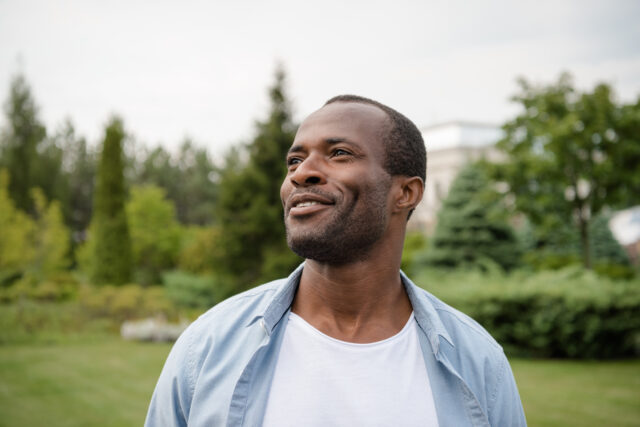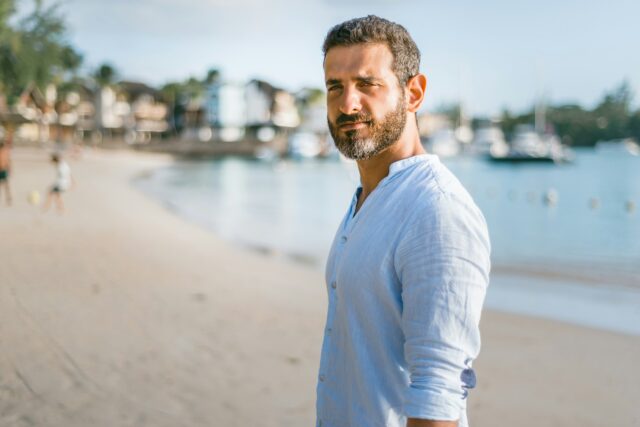Recovering from trauma isn’t a linear process, and it’s definitely not a short one.

It’s a journey filled with ups and downs, and sometimes it can be hard to recognise your own progress. However, there are subtle signs that prove you’re moving forward and truly healing. If you relate to any of the following, you’re clearly on the path to recovery.
1. You’re starting to feel your emotions again.

After trauma, it’s common to feel numb or disconnected from your emotions. If you’re starting to experience a range of feelings again, even if they’re uncomfortable, it’s a good sign. You might find yourself laughing at a joke, feeling frustrated in traffic, or tearing up at a film. This emotional awakening, while sometimes overwhelming, indicates that you’re processing your experiences and reconnecting with yourself.
2. You’re able to talk about the traumatic event without being overwhelmed.

Initially, discussing the trauma might have felt impossible or triggered intense reactions. If you can now talk about what happened without feeling completely overwhelmed, it’s a sign of progress. You might still feel emotional, but you can articulate your experience without reliving it intensely.
3. You’re developing new coping strategies.

If you notice you’re finding healthier ways to deal with stress and difficult emotions, you’re definitely on the right track. Maybe you’ve started practising mindfulness, taken up journaling, or found solace in a new hobby. These positive coping mechanisms replace less healthy ones you might have relied on immediately after the trauma, showing your resilience and growth.
4. Your sleep patterns are improving.

Trauma often disrupts sleep, leading to insomnia or nightmares. If you’re starting to sleep more soundly or have fewer trauma-related dreams, it’s a positive sign. Even small improvements, like being able to fall asleep more easily or waking up feeling more rested, indicate that your body and mind are beginning to relax and heal.
5. You’re reconnecting with people.

Trauma can make us withdraw from social connections. If you’ve started reaching out to friends, accepting invitations, or even just feeling more comfortable around other people, it’s a great sign. You might not be ready for large gatherings, but even small steps like texting a friend or having a coffee with a family member show you’re opening up to support and connection again.
6. You’re setting boundaries and saying ‘no’.

Learning to set healthy boundaries is a crucial part of healing. If you can say ‘no’ to things that don’t serve you or to stand up for your needs, it’s a sign of growing self-respect and self-care. This might mean declining invitations when you need rest, or setting limits with people who drain your energy. It shows you’re prioritising your wellness and regaining a sense of control.
7. You’re able to envision a future again.

Trauma can make it feel like there’s no future beyond the pain. If you’re starting to make plans, set goals, or even just daydream about possibilities, it’s a positive sign. You might be considering a career change, planning a trip, or thinking about new hobbies you’d like to try. This forward-thinking shows you’re regaining hope and seeing life beyond the traumatic event.
8. You’re noticing and appreciating small doses of happiness.

After trauma, it can be hard to find pleasure in anything. If you’re starting to notice and enjoy small moments of happiness — like a beautiful sunset, a delicious meal, or a child’s laughter — it’s a sign you’re reconnecting with life. These moments might be fleeting at first, but they’re important indicators that your capacity for happiness is returning.
9. You’re taking better care of your physical health.

Trauma can lead us to neglect our physical well-being. If you’re starting to pay attention to your body’s needs, it’s a positive step. This might mean eating more nutritious meals, starting an exercise routine, or keeping up with medical check-ups. Taking care of your physical health shows you’re valuing yourself and recognising the connection between your physical and mental health.
10. You’re less reactive to triggers.

Traumatic experiences often leave us hyper-vigilant and easily triggered. If you notice that things that used to set you off aren’t affecting you as intensely, it’s a sign of healing. You might still feel uncomfortable when reminded of the trauma, but you’re better able to stay grounded and not get swept away by those feelings.
11. You’re able to concentrate better.

Trauma can significantly impact our ability to focus and concentrate. If you can read a book, complete tasks at work, or engage in conversations without your mind constantly wandering, it’s a positive sign.
12. You’re starting to trust again.
 Source: Unsplash
Source: Unsplash Trauma often shatters our sense of safety and trust in the world. If you’re beginning to open up to people, share your feelings, or even just feeling less suspicious of people’s intentions, it’s a significant step. This doesn’t mean being naive, but rather developing a more balanced view of the world and the people in it.
13. You’re able to find meaning or purpose in your experience.
 Source: Unsplash
Source: Unsplash While trauma is never a positive thing, many survivors find they can derive some meaning from their experiences as they heal. This might mean becoming an advocate for other people, developing more empathy, or gaining a new perspective on life.
14. You’re more compassionate towards yourself.
 Source: Unsplash
Source: Unsplash Trauma can lead to intense self-criticism and blame. If you’re noticing that you’re kinder to yourself, more patient with your healing process, and less judgmental of your reactions, it’s a wonderful sign.
15. You’re able to feel safe in your body again.
 Source: Unsplash
Source: Unsplash Trauma often leaves us feeling disconnected or at odds with our own bodies. If you’re starting to feel more comfortable in your skin, more grounded, or more in tune with your physical sensations, it’s a significant milestone. This might mean feeling relaxed enough to enjoy a massage, practising yoga, or simply feeling present in your body without anxiety. It shows you’re re-establishing a sense of safety within yourself.
16. You’re able to help people without neglecting yourself.

As you heal, you might actually want to support people who’ve been through similar experiences. If you’re capable of doing this while still maintaining your own boundaries and self-care, it’s a sign of balanced healing. Being able to offer support without becoming overwhelmed or neglecting your own needs shows you’ve developed a strong sense of self and healthy coping mechanisms.




